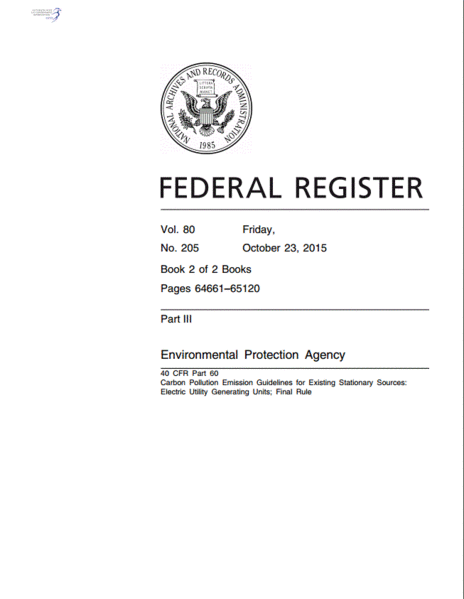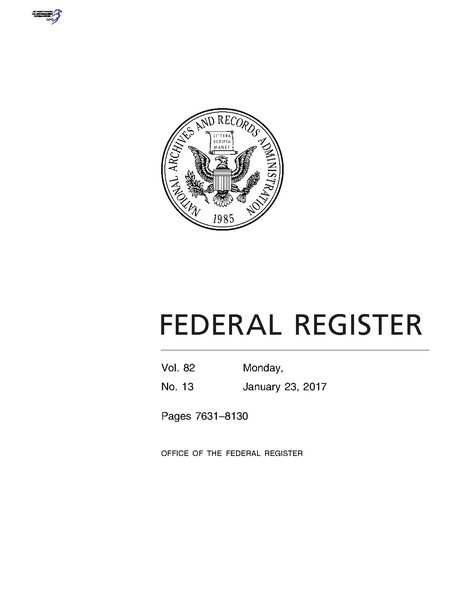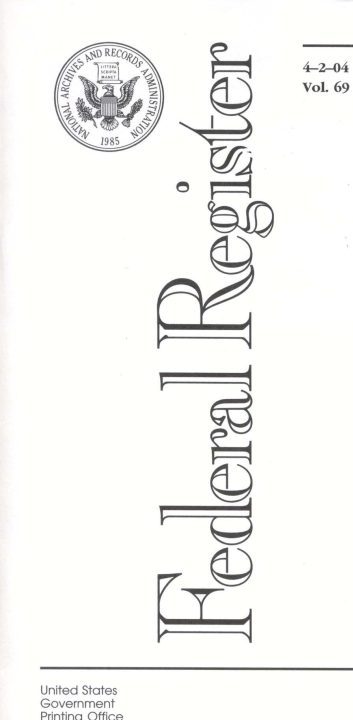Author: Molly Byrne
-
Three states end judicial deference practices

Lawmakers in Indiana, Nebraska, and Idaho passed bills in March 2024 to end judicial deference practices in each state. The bills were based on model legislation developed by The Goldwater Institute and the Pacific Legal Foundation, titled the Judicial Deference Reform Act. Nebraska Governor Jim Pillen (R) on March 27, 2024, and Idaho Governor Brad…
-
Biden administration issues two new environmental rules

The Biden administration issued new environmental rules in the past month to require climate-related disclosures by certain public companies and to establish air pollution emissions guidelines. The Securities and Exchange Commission (SEC) announced on March 6, 2024, that it had adopted a final rule aimed at establishing standards for climate-related disclosures by certain public companies.…
-
Utah lawmakers require discussion of federal air quality regulations

Utah Governor Spencer Cox (R) on March 13, 2024, signed a bill into law requiring the Utah Division of Air Quality to regularly discuss emissions-related regulations with the state’s Federalism Commission. The bill also includes requirements to discuss regulations from the Environmental Protection Agency and other federal rules affecting industries. The Utah Department of Environmental Quality…
-
Federal Register weekly update: Ten significant documents added

The Federal Register is a daily journal of federal government activity that includes presidential documents, proposed and final rules, and public notices. It is a common measure of an administration’s regulatory activity, accounting for both regulatory and deregulatory actions. From Feb. 5, 2024, through Feb. 9, 2024, the Federal Register grew by 2,140 pages for…
-
SCOTUS hears oral argument in challenge to Chevron deference

The United States Supreme Court on January 17, 2024, heard oral argument in Loper Bright Enterprises v. Raimondo and Relentless, Inc. v. Department of Commerce—two consolidated cases challenging an agency’s interpretation of a federal fishery law that could affect future applications of Chevron deference by the federal courts. A coalition of commercial fishermen in Loper…
-
OIRA reviewed 49 significant rules in November

In November 2023, the White House Office of Information and Regulatory Affairs (OIRA) reviewed 49 significant regulatory actions issued by federal agencies. OIRA approved two of these rules with no changes and approved the intent of 44 rules while recommending changes to their content. Three rules were withdrawn from the review process by the issuing…
-
Federal Register weekly update: 499 documents added

The Federal Register is a daily journal of federal government activity that includes presidential documents, proposed and final rules, and public notices. It is a common measure of an administration’s regulatory activity, accounting for both regulatory and deregulatory actions. From Nov. 27, 2023, through Dec. 1, 2023, the Federal Register grew by 1,288 pages for…
-
Federal Register weekly update: More than 575 significant documents issued so far in 2023

The Federal Register is a daily journal of federal government activity that includes presidential documents, proposed and final rules, and public notices. It is a common measure of an administration’s regulatory activity, accounting for both regulatory and deregulatory actions. From Nov. 20, 2023, through Nov. 24, 2023, the Federal Register grew by 2,228 pages for…
-
Federal Register weekly update: More than 25,000 documents added so far in 2023

The Federal Register is a daily journal of federal government activity that includes presidential documents, proposed and final rules, and public notices. It is a common measure of an administration’s regulatory activity, accounting for both regulatory and deregulatory actions. From Nov. 13, 2023, through Nov. 17, 2023, the Federal Register grew by 3,060 pages for…


